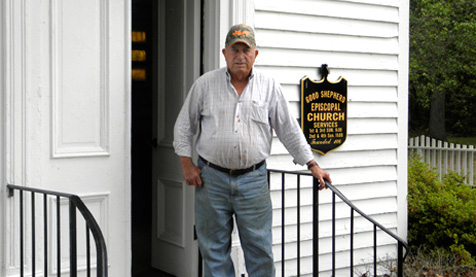When Lloyd ‘Meade’ Harrison looks over the fields of his farm today he sees all grass, much different than just a few short years ago when tobacco plants would have dotted those same fields on a cloudy June day. His farm, which has survived as a working family farm since about 1835, occupies approximately 1,000 acres in the small community of McKenney in Dinwiddie County.
The significance of Harrison’s farm in the short history of biosolids in Virginia is that his was the first farm in Dinwiddie County where biosolids was beneficially applied, back in 1997, which he said was around the time he retired from his position with the Virginia Cooperative Extension program where he worked fittingly as a tobacco specialist. It was during one of several research discussions he attended as part of his job that he learned about biosolids and their benefits to soil and crops. When he retired, he reached out to Recyc Systems to see if he could get some biosolids for his farm. Following permitting, he applied the biosolids to a pasture.
Today, virtually all of the fields on his farm receive biosolids to support the growth and sustainability of his pastures.
“To this day I am in awe of its ability to grow grass,” Harrison said. “It is good material since I have all the hay that I can use for my cattle.” Rather than growing tobacco, Harrison’s farm today is strictly used to grow hay in pastures for more than 175 brood cows. His son, who operates a farm immediately adjacent to Mr. Harrison’s, also grows hay for approximately 130 brood cows, and also beneficially applies biosolids.
“My family has worked this farm for a long time. I’ve found that using biosolids helps my soil, and I don’t have to spend money unnecessarily on fertilizer,” he said. “It’s a good material.”
